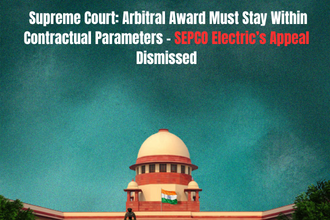The Punjab and Haryana High Court has once again underlined the constitutional guarantee of personal liberty and speedy trial under Article 21 of the Constitution of India, while granting bail to a man who had been incarcerated for more than five years without any sign of conclusion of his trial under the Unlawful Activities (Prevention) Act, 1967 (UAPA).
In its order delivered in Sukhjinder Singh @ Bittu v. State of Punjab, the Division Bench of Justice Deepak Sibal and Justice Lapita Banerji made it clear that the Court could not permit a situation where the “lengthy and arduous process of trial becomes the punishment in itself.”
Background of the Case
The accused, Sukhjinder Singh @ Bittu, was arrested following allegations of recovery of a pistol and drug money worth ₹50,000. He was booked under provisions of the UAPA, one of the country’s most stringent anti-terror laws.
According to the State, Singh was allegedly associated with anti-national activities and was arrested during a raid based on secret intelligence inputs. The police claimed that the accused, along with others, was involved in offences such as dacoity, extortion, drug smuggling, and possession of imported arms and ammunition.
However, despite the filing of the chargesheet in 2021, the prosecution had not examined even a single witness out of the 36 listed witnesses, even after more than five years of Singh’s incarceration.
Court’s Observations
The High Court expressed serious concern about the manner in which trials under UAPA are prolonged, often leading to indefinite detention of accused persons. It held that:
- The accused had already spent 5 years, 2 months, and 30 days in custody.
- The State was unable to give any reasonable estimate for the completion of trial.
- No incriminating material directly linking the accused to terrorist activities was placed on record.
The Bench referred to several judgments of the Supreme Court of India where it has been consistently held that prolonged incarceration without progress in trial violates the right to life and liberty guaranteed under Article 21.
The Court thus concluded:
“The Constitutional Court would like to prevent a situation where the lengthy and arduous process of trial becomes the punishment in itself … Article 21 of the Constitution of India enshrines the fundamental right to protection of life and liberty which also includes the right to a speedy trial.”
Bail Conditions
The Court directed that the accused be released on bail bond of ₹10 lakh, with two sureties of ₹10 lakh each. While granting bail, the Court balanced the concerns of national security and the rights of the accused, but highlighted that detention cannot be indefinite when the trial has not even begun in earnest.
Arguments by the Parties
State’s Stand
- The State, represented by Senior Deputy Advocate General Sartej Singh Gill, argued that the accused was engaged in anti-national activities.
- It was alleged that Singh was involved in possession of weapons, car snatching, and narcotics smuggling.
- The State contended that such offences warranted strict application of UAPA and bail should not be granted.
Defence’s Argument
- The defence team led by Advocates Saurav Bhatia and Kuljinder Billing argued that the accused had already suffered a long period of incarceration without trial.
- They pointed out that no direct evidence linked Singh to any terrorist acts.
- They stressed that continued detention violated the constitutional guarantee of speedy trial and personal liberty.
Significance of the Judgment
This ruling is significant for several reasons:
- Reaffirmation of Article 21
The Court reiterated that the right to speedy trial is an integral part of the right to life and liberty. Inordinate delay in conducting trials is itself a violation of fundamental rights. - Checks on UAPA Misuse
UAPA has often been criticized for its stringent provisions, including stringent bail conditions. This judgment shows that even under UAPA, prolonged incarceration without trial can justify bail. - Balance Between Security and Liberty
While national security remains paramount, the Court emphasized that the Constitution cannot be overridden by prolonged procedural delays. - Judicial Trend
This judgment aligns with the Supreme Court’s recent approach in cases like Union of India v. K.A. Najeeb (2021), where it was held that long periods of incarceration can justify bail even under UAPA.
Broader Implications for UAPA Cases
The UAPA is one of India’s toughest laws, designed to deal with terrorism and unlawful activities. However, it has been criticized for:
- Ambiguous definitions of “unlawful” and “terrorist activities”, leading to misuse.
- Stringent bail conditions under Section 43D(5), which make it nearly impossible to secure bail unless the Court finds no prima facie case.
- Delays in trial, leaving accused individuals in prison for years without conviction.
This ruling by the Punjab and Haryana High Court signals judicial willingness to uphold constitutional safeguards even in the face of tough security laws.
Key Takeaways
- Prolonged trial delays cannot justify indefinite detention under UAPA.
- Article 21 guarantees speedy trial and personal liberty, which courts must enforce.
- Bail can be granted under UAPA where the State fails to show progress in trial or direct evidence linking the accused to terrorist activities.
- Judiciary remains a constitutional safeguard against excessive use of preventive detention laws.
Conclusion
The Punjab and Haryana High Court’s decision to grant bail to Sukhjinder Singh after more than five years of incarceration under UAPA is a significant reaffirmation of the principle that bail, not jail, should be the norm, especially when trials are indefinitely delayed.
While the State must remain vigilant in tackling terrorism and organized crime, the constitutional promise of liberty cannot be sacrificed at the altar of procedural inefficiency. The judgment highlights the delicate balance courts must maintain between security imperatives and fundamental rights, ensuring that justice is not denied in the guise of prolonged trials.
Also Read
Selective Regularisation of Daily Wagers Violates Equity: Supreme Court


